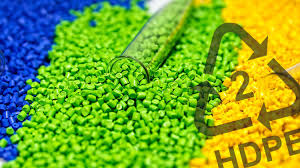Plastic Granules Management
Plastic granules are small, solid particles of plastic that serve as the raw material for creating various plastic products. These granules are melted down and molded into a wide range of shapes and forms, from everyday items like bottles and bags to high-end industrial components.
Plastic granules are an essential part of the plastic industry, representing the intermediary stage between raw materials (such as crude oil, natural gas, or recycled plastics) and the finished product. They are cost-effective, easy to transport, and allow manufacturers to customize the production process to suit different applications.
Plastic granules are classified based on the type of polymer they are made from. Each type has its own characteristics, strengths, and uses:
- LDPE (Low-Density Polyethylene): LDPE is a flexible, soft plastic used to make products like plastic bags, film wraps, and containers. It is known for its resilience and ability to withstand pressure, making it ideal for packaging applications.
- HDPE (High-Density Polyethylene): HDPE is stronger and more rigid compared to LDPE. It is commonly used to manufacture items such as milk jugs, detergent bottles, and outdoor furniture. It has excellent resistance to chemicals and impact, making it highly durable.
- LLDPE (Linear Low-Density Polyethylene): LLDPE combines the strength of HDPE and the flexibility of LDPE. It is widely used in films, stretch wraps, and plastic liners. Its flexibility allows for a thinner material to be used without sacrificing strength.
- PP (Polypropylene): Polypropylene is a versatile plastic known for its heat resistance and toughness. It is used to make a range of products such as automotive parts, textiles, and medical devices. Its durability and low moisture absorption make it ideal for high-performance applications.
- PVC (Polyvinyl Chloride): PVC is a rigid plastic often used in construction for pipes, window frames, and vinyl siding. It is durable, weather-resistant, and has good electrical insulation properties. PVC can also be made more flexible when combined with plasticizers, making it suitable for products like cables and flooring.
- PET (Polyethylene Terephthalate): PET is commonly used in the production of bottles, food containers, and synthetic fibers. It is lightweight, transparent, and offers excellent moisture and gas barrier properties, making it perfect for packaging applications.
